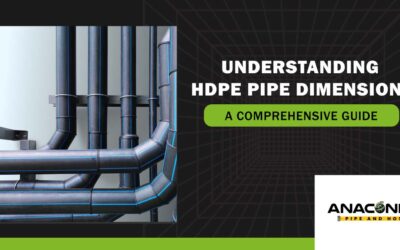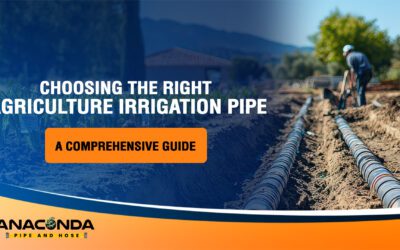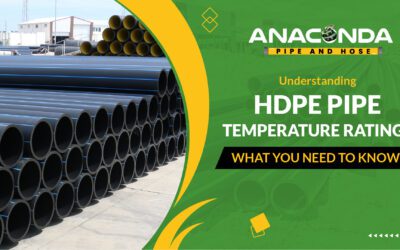HDPE Transport Pipe: Best Choice For Energy Companies
Stretching across vast expanses of rugged terrain, remote pipelines transporting oil, gas, chemicals, and water face constant threats from corrosion, leaks, and cracks. Traditionally made from cheaper steel and concrete, these aging pipelines are increasingly prone to disastrous failures as demand volumes rise.
For pipeline owners prioritizing safety and sustainability, advanced HDPE (high-density polyethylene) systems provide the ideal replacement material for constructing protected pipelines that stand the test of time across all landscapes.
The Remote Pipeline Dilemma
Remote pipelines share essential transportation duties but contend with the following:
- Harsh above-ground exposure to sun, wind, and temperature swings
- Large pressure fluctuations and flow interruptions
- External corrosion and mechanical damage from rocks or equipment
- Inner abrasion from solid particulates or corrosive chemicals
Eventually, these factors degrade outdated metallic transport pipeline, forming cracks, blockages, and leaks that shut down transport until expensive emergency repairs can be mobilized. Prolonged shutdowns can cost companies millions in lost production and profits.
Worse, leaks release contents that damage fragile ecosystems and endanger nearby communities. Old-style metal pipelines have become a problem as regulators crack down on offenders.
The Safety-Focused Solution: HDPE Transport Pipe
For over 50 years, HDPE piping has provided power, chemical, and industrial companies with safe, low-maintenance pipelines boasting numerous performance advantages:
- Leak-proof fusion-welded joints instead of gaskets prone to degradation
- Smooth, non-stick inner walls that maintain open bore flow
- Flexibility to withstand ground shifting and seismic events
- Broad chemical resistance that inhibits external corrosion
Combined, these properties give HDPE pipeline transport:
Total Confinement Integrity
Joints fuse into a continuous pipeline without weaknesses that allow contents to leak out or external contamination in.
Flexibility to Bend Without Breaking
The elasticity of HDPE allows it to flex and adapt to ground movements that would fracture rigid steel or concrete pipelines.
Resilience Against Pressure Spikes
The flexible walls and strong fused joints prevent ruptures from pressure spikes or surges.
Clog & Erosion Resistance
Smooth inner walls maintain open transport capacity by preventing buildup or wall erosion from abrasive contents.
Extended Lifespans in Harsh Environments
Impervious to UV, temperature swings, abrasion, and many chemicals, HDPE retains optimal performance for 50+ years.
Simplified Remote Installation
Joining HDPE’s lightweight sections, either by fusing or especially with adaptable Bauer fittings, is far less labor-intensive than concrete or steel.
Environmental Assurances
With its fused, non-leak architecture, HDPE provides confidence that pipeline contents are fully contained across remote terrain.
Enhanced Sustainability
Fusion-welded HDPE pipelines have a conservatively estimated 100-year service life — significantly reducing the resources and emissions required for repairs and replacements versus other materials.
Increased Safety Margins
HDPE’s incredible material advantages give pipeline owners much wider safety margins for operating across thousands of miles of complex territory.
The Future of Safe Product Delivery
For remote pipeline managers, HDPE represents the future of reliable fluid transport. While deteriorating steel lines keep failing communities and ecosystems, heat-fusion HDPE technology provides a proven materials solution to prevent disastrous leaks for generations.
With enhanced longevity, efficiency, resilience, and safety capabilities, HDPE pipeline transport empowers remote pipelines to serve customers better while protecting irreplaceable environments. It’s the clear choice for remote product transport today and soon. Investing in HDPE helps ensure remote pipelines stand the test of time.
The transition to advanced HDPE (high-density polyethylene) piping systems marks a significant advancement in solving the pressing issues facing remote pipelines that transport oil, gas, chemicals, and water through rugged terrains. Older pipelines were traditionally made of steel or concrete and are increasingly prone to corrosion, leaks, and ruptures, which pose serious safety and environmental risks. However, HDPE technology prioritization enables the construction of safeguarded lines that withstand all adverse conditions, even harsh ones. HDPE pipelines have features like fusion-welded joints without leakage, flexible yet solid structures, and resistance to a wide range of chemicals, providing unmatched performance benefits such as longer life spans, more accessible installation procedures, and enhanced green credentials.
Furthermore, deploying HDPE pipe systems enhances safety margins while improving operational efficiency at the same time, thus reflecting some degree of commitment to sustainability. With a conservative estimate of service lives of over 100 years, fusion-welded HDPE pipes significantly reduce the need for repairs and replacements, thus cutting down on resource use and emissions. HDPE, as it is the future of dependable fluid conveyance, allows remote pipeline managers to serve their customers better and protect indispensable ecosystems. Pipeline operators can secure the resilience and reliability of their distant pipes for generations by investing in this kind of technology that provides a safe and sustainable means of delivering goods over vast and complex regions.





0 Comments